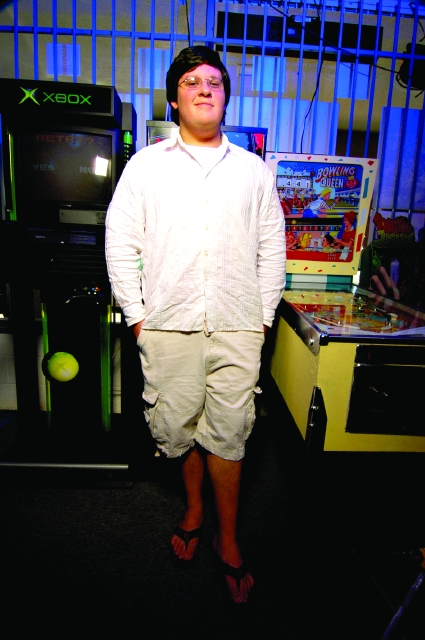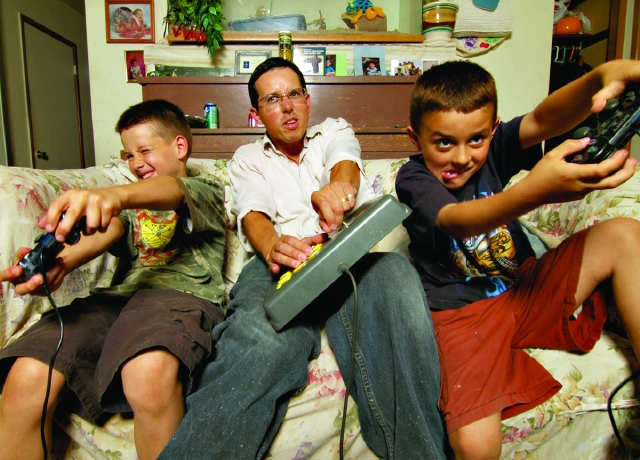Geeks Ain’t What They Used To Be
Video Gaming In Albuquerque


Jason Montoya goes a few rounds with his sons.
Wes Naman
Latest Article|September 3, 2020|Free
::Making Grown Men Cry Since 1992


Jason Montoya goes a few rounds with his sons.
Wes Naman
